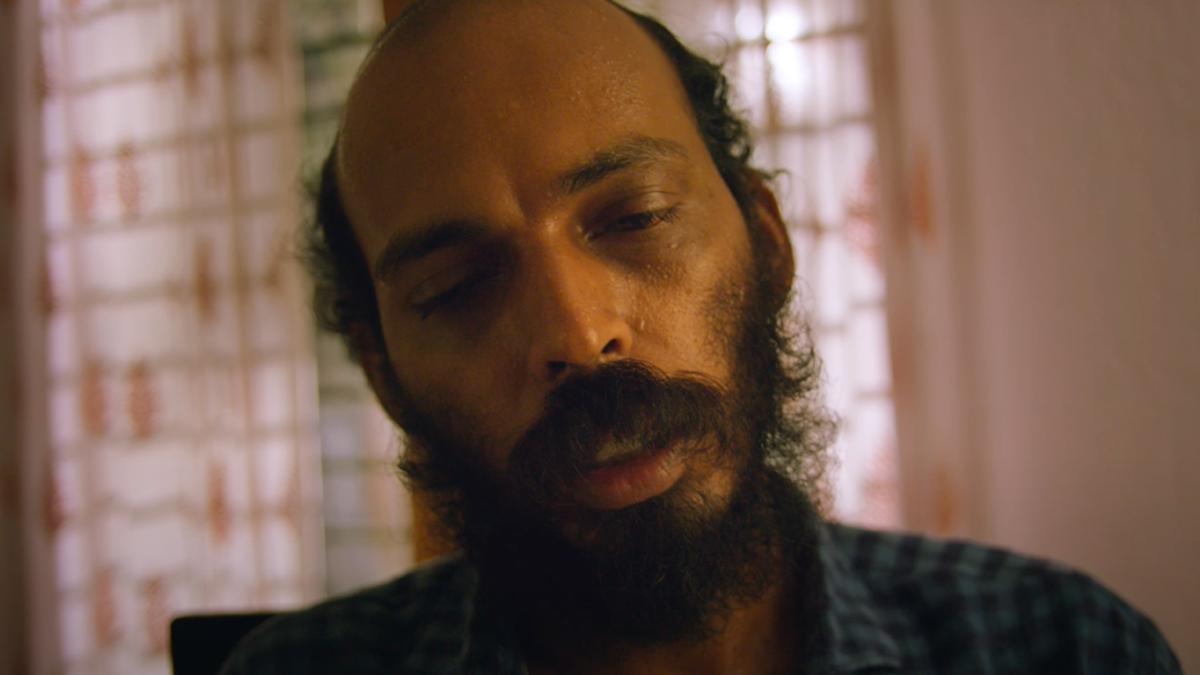
Mithilesh Edavalath’s movie ‘Roopanthara’ (Transformation) stands as a commendable example of how the presentation of an idea can elevate its impact beyond ordinary expectations. This four-story anthology, notably featuring and co-written by Raj B Shetty, embarks on an intriguing journey that underscores the importance of self-transformation. The concept is straightforward but employs an engaging storytelling technique, revealing the potential hidden within the mundane.
Nothing in ‘Roopanthara’ strikes as groundbreaking. However, Mithilesh—treating each story as a mini-epic—successfully captivates the audience’s attention throughout the film. This accomplishment partly owes itself to the director’s adeptness at execution, which compensates for the somewhat rudimentary writing.
In one compelling episode, the narrative revolves around a beggar (played by Lekha Naidu), who finds herself arrested for the alleged crime of kidnapping a baby. Here, the antagonistic force is an influential, retired army man who refers to the underprivileged as “elements” to be purged from society. His disdain and sense of entitlement prompt him to push for the beggar’s incarceration. This episode subtly underscores societal disparity and prejudice, reflecting how affluence often dictates the dynamics within police stations.
Despite the predictable nature of the story, the unfolding events inside the police station are gripping, thanks to Mithilesh’s artful execution. The dialogues are sharp, echoing the frustrations of the police officers, while the casting is impeccable. The actor portraying the influential man embodies the obnoxiousness of privilege so effectively that it evokes a visceral response from the viewer. The director also heightens the thriller aspect through Praveen Shriyan’s deliberately shaky camerawork, which injects a much-needed intensity into the scenes. The story’s narrator, a naive new police constable (Bharath GB), adds another layer to the narrative by persistently questioning his senior about the case’s progression.
In another story, Mithilesh tackles the theme of a troubled childhood. This segment, characterized by Midhun Mukundan’s dramatic background score, unravels like a ticking time bomb. The protagonist, a young boy turned drug addict, delves into anti-social behavior, posing a menace to societal welfare. His dark narrative, portrayed in a believable and somber tone, finds its depth in the character’s tormented childhood.
Additionally, the anthology includes a heartwarming episode featuring an old couple from a village.
. Their charming banter brings a refreshing, light-hearted touch to the film. The duo’s dreams, despite their impoverished reality, lend an optimistic aura to the episode. The narrative delicately avoids melodrama until it is revealed that the wife suffers from a terminal illness. Her heart-wrenching desire to spend a day in Bengaluru remains unfulfilled, painting a poignant picture of lost opportunities. However, the director falls slightly short in organically eliciting sympathy for the characters, which feels like a missed opportunity to deepen emotional engagement.
The final story spotlights Raj B Shetty as a goon who embroils himself in a pointless conflict with an IT employee, an engaging role played by Jaishankar Aryar, known for directing ‘Shivamma’. Despite the seemingly trivial setup, the clash between the characters is intriguing, thanks to the realistic and thoughtfully choreographed fight sequences. The resolution of their conflict is both surprising and inventive, defying conventional expectations.
While ‘Roopanthara’ exhibits the common pitfall of anthologies where conclusions may falter in their effectiveness, it offers moments of genuine impact. One criticism often directed at contemporary Kannada filmmakers, including Mithilesh, is their propensity for overemphasizing philosophical undertones. ‘Roopanthara’ occasionally succumbs to this issue. The film adopts a futuristic segment, where the director conveys discontent about the world’s deteriorating state. Using the metaphor of a worm metamorphosing into a butterfly, Mithilesh metaphorically expresses the necessity of human transformation to improve the world. However, the overt efforts to drive home this moralistic philosophy can feel a bit forced, as if the director is spoon-feeding the message instead of allowing it to resonate naturally with the audience.
Nevertheless, Mithilesh’s confident debut as a director is evident in ‘Roopanthara’. He demonstrates a keen ability to bring his ideas to fruition with conviction. Despite the straightforward nature of his narratives, his execution is compelling, hinting at a promising future if he can push the boundaries of his thoughts to embrace a more daring and edgy vision.
‘Roopanthara’ graces the screens starting July 26, adding a notable title to the evolving landscape of Kannada and Indian cinema. The film, through its exploration of self-transformation, offers a potent reflection on personal growth and societal dynamics, inviting viewers to ponder these themes long after the credits roll.












